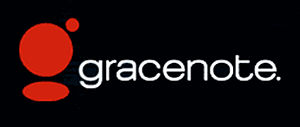| Vudu, Inc. (Photo credit: Wikipedia) |
I adopted VUDU as my movie collection cloud service last year with my fingers crossed that it would remain viable, especially as a subsidiary of retailing giant Walmart. A few months ago I received an e-mail from VUDU asking me to try their new VUDU At Home application that would let me use my own computer to scan my DVDs and license them for my digital cloud collection. The kicker was that if I scanned at least 10 movies in a session, I would only have to pay 50% of the digital conversion fee. I found this a really attractive offer since I had an extensive library of standard definition DVDs that cost me $5 each to convert to a high quality streaming digital copy if I took them to Walmart for verification.
So, I downloaded the app onto my HP 64-bit Windows 7 workstation, collected my stack of DVDs that I had verified were available for Disc to Digital conversion, and prepared to scan my first disc. Unfortunately, regardless which disc I tried, I received the error that the application could not read the disc. That was not a good start.
I reported the problem to VUDU and they had me submit a trouble ticket that soon disappeared into the dark hole of a tech support queue, never to be seen or discussed again. I wasn't willing to give up this opportunity to save a substantial amount of money though, so I thought I would try the app on my husband's Lenovo laptop. Voila, it installed and functioned without a hitch and I was soon scanning dozens of my DVDs and converting them to HDX for only $2.50. (I wish I had a Blu-Ray drive on that laptop. Then, I would only have to pay $1 for my Blu Ray discs!)
I only ran into a few DVDs that could not be read and my research on the VUDU At Home discussion forum revealed that there were some titles that were apparently missing from the GraceNote database that was being used by VUDU to verify discs. I reported the titles and their UPC codes to GraceNote as well as VUDU.
| Gracenote log (Photo credit: Wikipedia) |
Oh well, at least I saved by my estimate about $320 in digital conversion fees using the VUDU at home application. I would encourage VUDU to keep the discount program in effect after the end of the public beta as it serves as the carrot to get people to scan their own discs as opposed to running down to Walmart with them where many of the photo center staff have little or no experience with the VUDU verification process and often take 30 - 45 minutes to certify the discs then stamp them to deter people from sharing their discs with their friends and neighbors for their VUDU registration.
One other observation about VUDU's digital delivery system. Lately, I always check VUDU's direct purchase price and compare it with Amazon's every time I want to purchase a movie. With the exception of 3D movies (which for some reason are never offered to consumers as a digital copy despite the fact that VUDU will rent and can stream 3D movies), I now see no reason to buy a physical disc unless it is significantly cheaper. I do wish the digital version was less expensive, though, as it should be, instead of almost equal or equal to the same price as a physical disc. I realize this is probably the result of licensing contracts with the studios but it hardly takes into account the cost savings of not having to physically produce and distribute a disc. The movie studios must have taken lessons from the e-book sellers who think they should be paid as much for a download file as a physical hard copy book. This type of fattening the profit margin only leads to more people willing to purchase pirated merchandise in the long run as the RIAA discovered in the music industry. If digital-only versions of films were priced at $9.99 or less, you'd see a lot more people buying digital in the first place than scrabbling through bargain bins or searching the secondary market for their favorites.
Related articles



